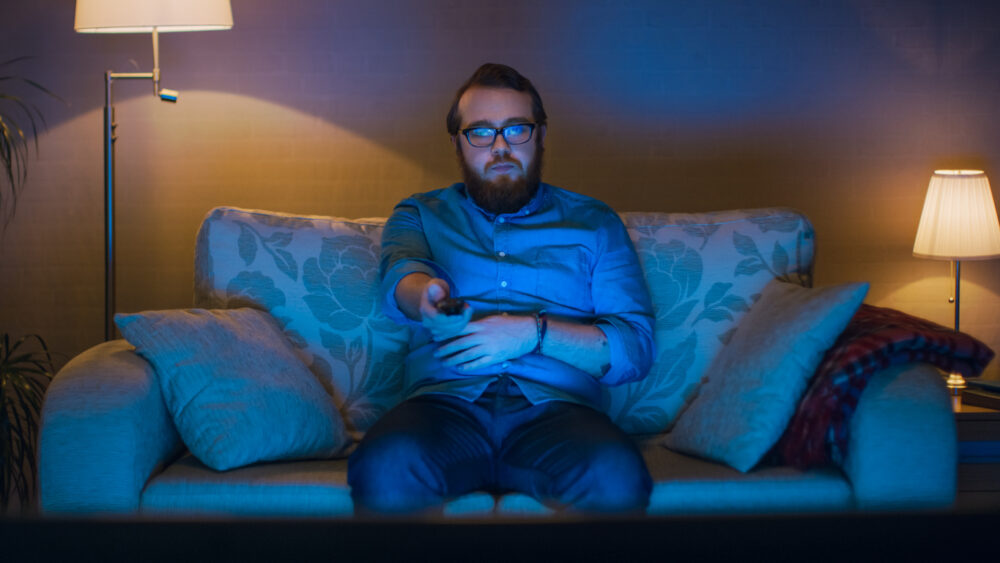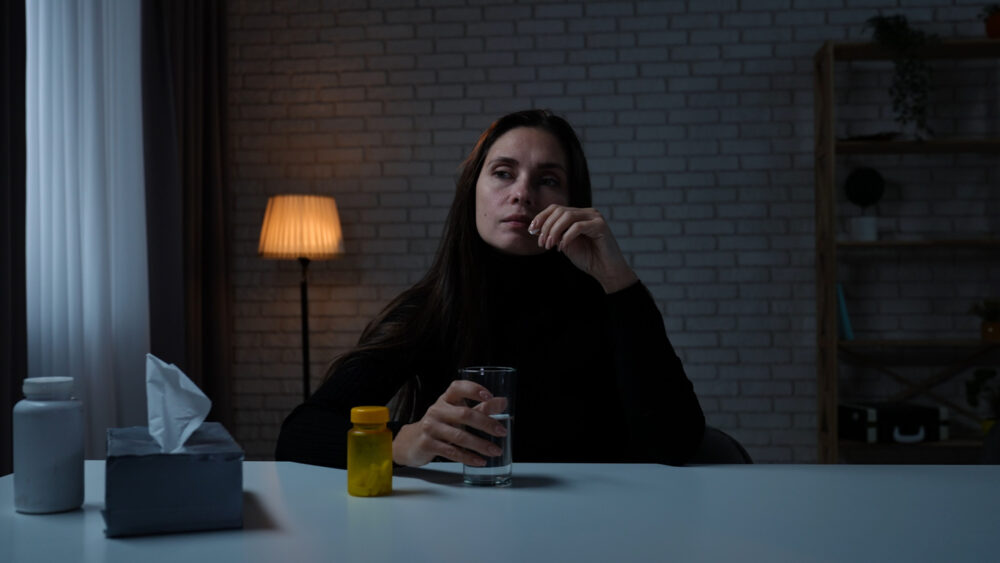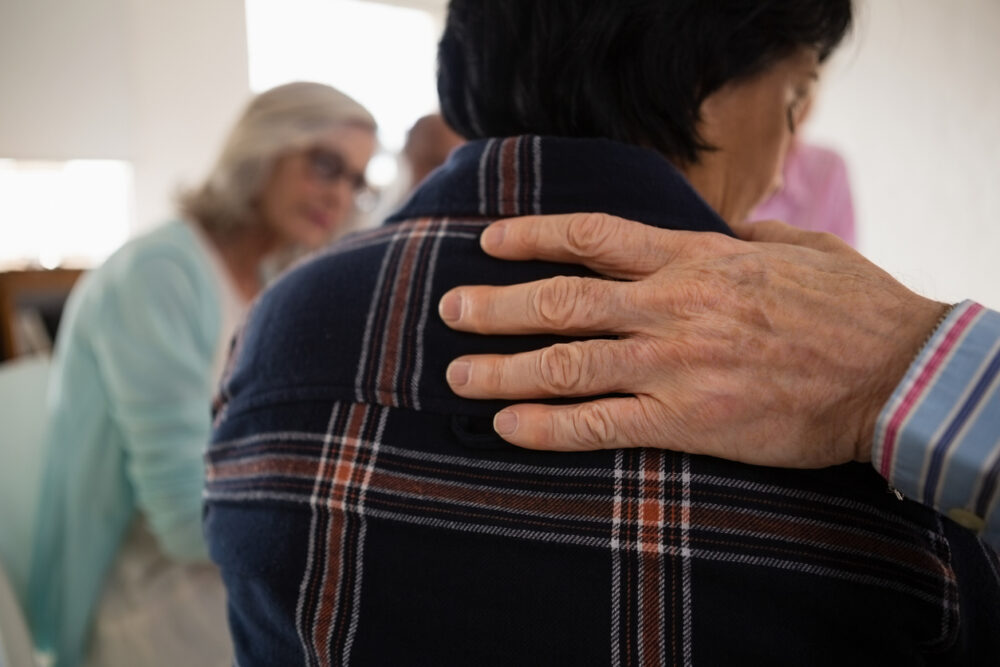These false beliefs created distance where there could have been compassion.

Fear isn’t something we’re born with—it’s something we learn. And when it comes to mental illness, most people learned the wrong lessons early. We were shown the extremes. The danger. The headlines. We were warned in whispers or jokes, fed a steady stream of distorted images in film and media. Instead of understanding, we were handed fear. Instead of facts, we got shame dressed up as caution.
But mental illness isn’t rare. It isn’t always visible. And it doesn’t look the way you were taught to imagine. The ideas we’ve inherited about it—violence, unpredictability, weakness, blame—aren’t just wrong. They’re harmful. They create stigma, fuel isolation, and leave people untreated. They also stop us from showing up for the people we care about. These aren’t harmless misconceptions. These are lies that build walls between us and the truth. It’s time to unlearn them, one by one.
1. The fear of violence came from headlines, not facts.

Movies, news stories, and even crime dramas love to link mental illness with violence. It’s dramatic. It sells. But the truth is, people with mental illness are far more likely to be victims of violence than perpetrators. As Tori DeAngelis reports in APA Monitor, research consistently shows that the majority of violent acts are carried out by individuals without any mental health diagnosis. The real danger lies in how we use fear to justify exclusion, neglect, and abuse.
This stereotype doesn’t just stigmatize—it isolates. It makes it harder for people to get support, and it leads others to ignore early signs of struggle out of fear or denial. Mental illness isn’t a red flag for danger. It’s a health condition—often invisible, often manageable, and never a reason to treat someone like a threat. The more we buy into the myth of “scary and unstable,” the more we fuel the systems that punish people for being unwell.
2. Mental illness isn’t always easy to spot.

We’ve been conditioned to expect visible breakdowns—erratic behavior, public outbursts, dramatic shifts. But most mental illness doesn’t look like that. It can show up as withdrawal, exhaustion, irritability, silence.
According to experts at the American Psychiatric Association, symptoms of mental illness often appear subtly—through changes in mood, social withdrawal, or everyday functioning that can easily go unnoticed. And many learn to hide their symptoms because being visibly unwell puts them at risk of judgment—or worse.
This lie makes people miss what’s right in front of them. It also creates shame for those who are suffering but don’t “look sick enough.” Mental illness doesn’t come with a uniform. You can’t always spot it from across a room. And assuming you can leads to missed chances for support, compassion, or understanding. Just because someone seems fine doesn’t mean they’re not in pain. Real care starts with curiosity—not assumptions.
3. Struggling isn’t a character flaw.

Language like “lazy,” “dramatic,” or “too sensitive” gets thrown at people who are dealing with anxiety, depression, PTSD, or bipolar disorder. Margarita Tartakovsky writes in Psych Central that when media and culture portray mental illness through judgmental or exaggerated stereotypes, it reinforces the belief that symptoms reflect flaws instead of health conditions. We don’t do that with physical illnesses—but when the struggle is mental, people are expected to just snap out of it.
This mindset turns suffering into something shameful. It tells people they’re weak instead of human. And it trains the rest of us to view mental illness as a problem with the person, not their health. The truth is, struggling doesn’t mean someone is unstable or irresponsible. It means they’re living in a world that doesn’t always support the way their brain works. And blaming them for that says more about us than it does about them.
4. Therapy is a tool, not a last resort.

There’s a quiet judgment built into how we talk about therapy. As if it’s a last resort. As if the people who go are somehow failing at life. In reality, therapy is a tool—one that helps people understand themselves, process pain, and build better patterns. It’s not about being “too much” to handle. It’s about learning how to move through life with more clarity and support. This belief stops people from getting help before things spiral.
It turns mental health care into something reactive instead of preventative. And it stigmatizes the very thing that can keep people grounded. Therapy isn’t for the weak. It’s for people navigating a complex world with real emotions and real challenges. Framing it as failure only ensures more people suffer alone instead of being supported.
5. Recovery isn’t always a straight line.

We love a comeback story. The big transformation. The moment when someone goes from breakdown to breakthrough. But real mental health recovery isn’t a neat arc. It’s messy. Nonlinear. Ongoing. It might look like stability for years, then a setback. It might mean learning to live with symptoms instead of erasing them. And that’s okay.
Expecting full “cures” sets everyone up for disappointment. It makes people feel like they’ve failed if they’re still struggling. It pressures loved ones to push for closure instead of showing up for the long haul. Recovery doesn’t mean you never have a bad day again. It means building a life where those bad days don’t define you. And where support, not perfection, becomes the goal.
6. Medication doesn’t erase who someone is.

The fear around psychiatric meds runs deep. You hear things like “zombie,” “numb,” or “not themselves anymore.” But medication doesn’t erase personality. It helps regulate symptoms that interfere with daily life. For many, it means finally being able to focus, sleep, stabilize, or function without being constantly overwhelmed.
This belief often comes from misunderstanding how these medications work—or from seeing someone start a new treatment before it’s properly adjusted. Finding the right dosage and fit takes time, but the goal is never to erase someone’s identity. It’s to support their brain in functioning more clearly. And when it works, it can be life-changing. Dismissing medication as dangerous or dehumanizing doesn’t just spread fear. It keeps people from exploring something that could help them feel more like themselves, not less.
7. Unpredictability isn’t the problem—stigma is.

There’s a long-standing myth that mentally ill people are unstable, impulsive, or likely to “snap.” That perception isn’t just exaggerated—it’s rooted in fear, not fact. Most people with mental illness manage their routines, jobs, and relationships just like anyone else. And when someone is experiencing a crisis, it’s usually after a long period of struggle that’s been ignored or misunderstood. This stereotype creates distance. It makes people feel unsafe around others who are hurting—when, in reality, the person struggling is often far more scared than you are. Mental illness can be intense, yes. But intensity isn’t unpredictability.
It’s a signal that someone is overwhelmed, not out of control. People deserve support, not suspicion. The more we learn to differentiate between discomfort and danger, the closer we get to actual safety—for everyone.
8. Bad choices aren’t what cause mental illness.

There’s this quiet narrative that people with mental illness just made the wrong decisions. They didn’t take care of themselves. They hung out with the wrong people. They didn’t try hard enough. But mental illness isn’t a consequence—it’s a condition. Trauma, genetics, environment, and biology all play a role. Blaming people for their suffering erases the systems that helped create it.
This belief lets society off the hook. If it’s all personal failure, we don’t have to talk about poverty, racism, abuse, or broken healthcare systems. But those things matter. A lot. People don’t choose depression. They don’t choose schizophrenia. They don’t choose to spiral into crisis. They choose to survive it however they can. The problem isn’t that they made bad choices. It’s that they were often given too few real ones.
9. No one is beyond help.

When someone is really struggling, it can be scary. Confusing. Frustrating. Especially if you’ve reached out and felt pushed away. But labeling someone as a lost cause is a form of abandonment dressed up as realism. No one is beyond help. But the kind of help that works might not look how you expect. And it rarely works on your timeline.
Support isn’t about fixing someone. It’s about staying connected, even when the process is hard or slow. When you give up on someone just because they didn’t get better fast enough, you reinforce the very isolation that makes healing harder.
People need patience. Resources. Consistency. And most of all, to be seen as more than their lowest moment. Believing in someone’s capacity to heal is one of the most powerful things you can offer—even if they can’t believe it yet themselves.
10. Silence makes things worse—not safer.

Many people grow up believing that talking about mental illness plants the idea in someone’s head—or makes it more real. But silence doesn’t prevent suffering. It deepens it. When people feel like they can’t speak about their pain, they learn to hide it. And what’s hidden only festers. Open conversation doesn’t cause mental illness. It makes space for people to be honest about what they’re already experiencing.
Silence sends the message that certain emotions or thoughts are unacceptable. That you’re only safe if you keep it in. But safety doesn’t come from secrecy. It comes from connection, from knowing you’re not alone, from having language for what you’re going through. When we talk about mental health openly, we don’t spread illness—we interrupt its isolation.
11. Kindness is good—but it’s not enough.

Kindness matters. Compassion, empathy, respect—they all play a role. But if we stop at kindness, we miss the bigger picture. Mental illness doesn’t just need soft words. It needs access to care. It needs housing, medication, therapy, crisis support, and community safety nets. It needs policy, not just pity.
Telling someone to “reach out if you need anything” isn’t enough if there’s nowhere to reach. If the systems aren’t there. If the resources don’t exist. Kindness without action is a Band-Aid on a systemic wound. The stigma around mental illness won’t end with good intentions. It ends with advocacy, funding, and radical changes in how we treat people who are struggling. Caring means more than not judging. It means showing up—and fighting for a world where help is a right, not a privilege.